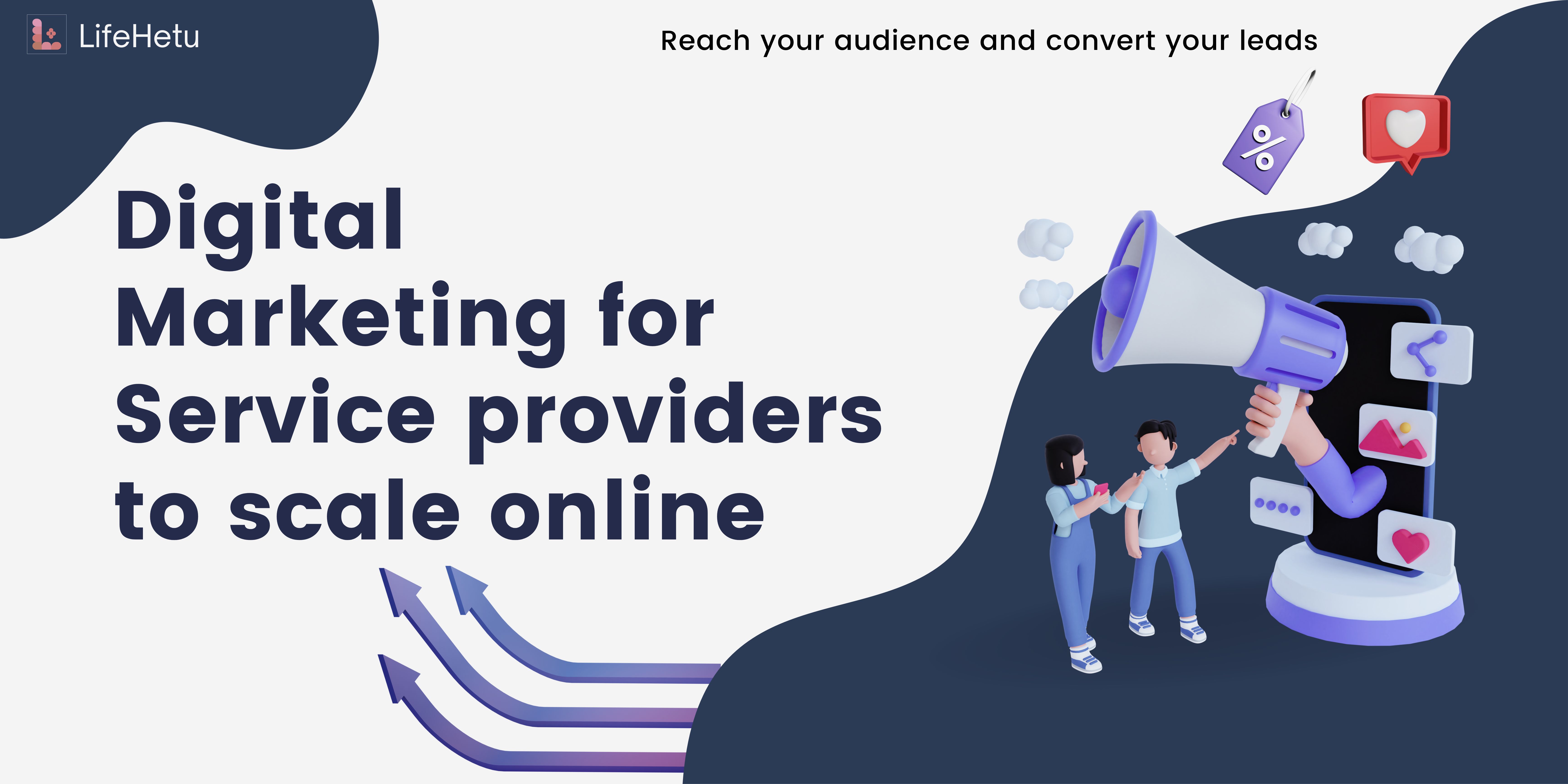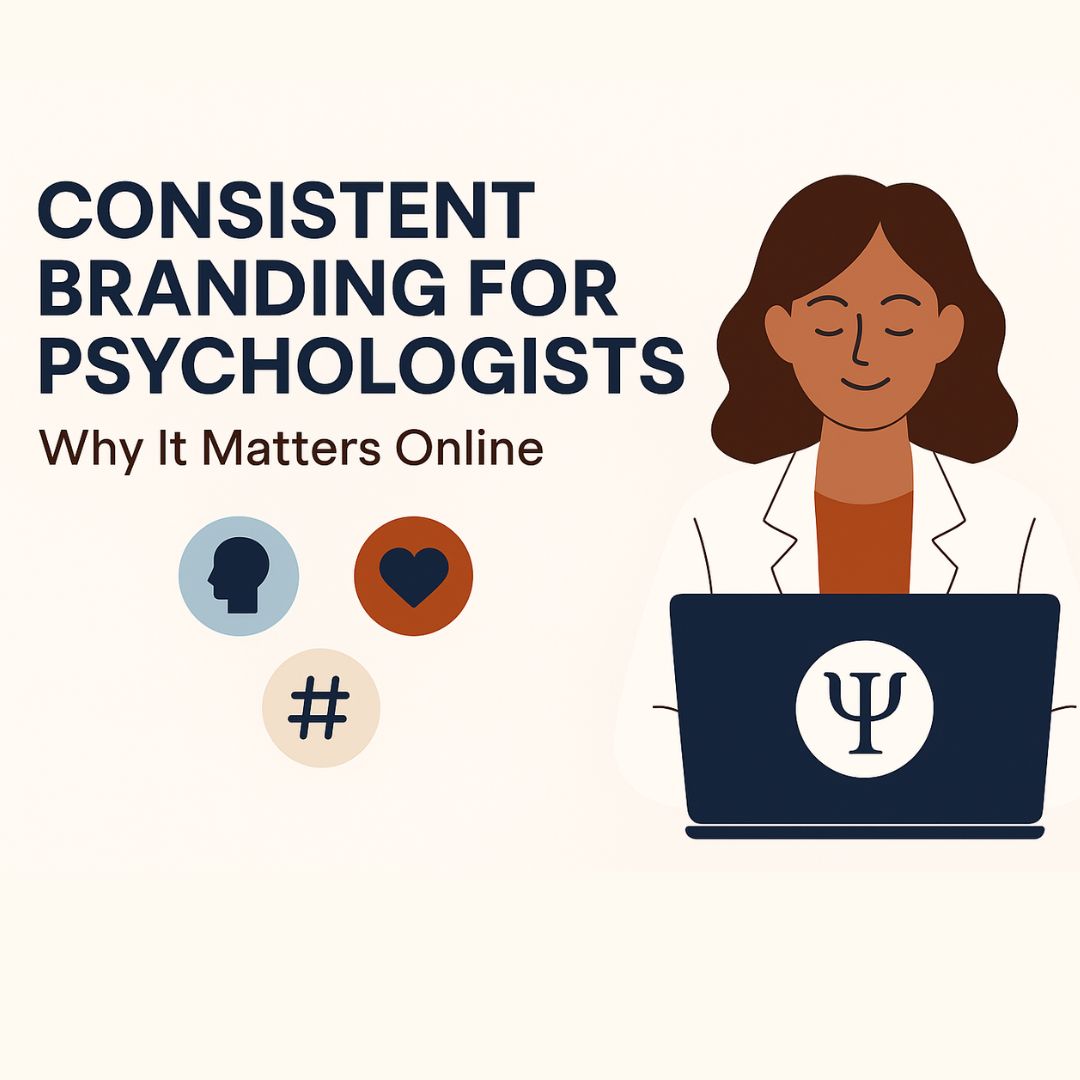5 Essential Online Marketing Strategies for Mental Health Professionals
A mental health professional's visibility and ability to draw in clients can be considerably increased by a well-designed website, optimised website design, and planned online marketing techniques. We will discuss five crucial online marketing methods for mental health professionals in this article, including the value of a business website, issues with website design, making use of online platforms, content marketing strategies, and using online directories.

Online marketing has become crucial for mental healthcare professionals in today's digital world to reach and engage their target audience. A mental health professional's visibility and ability to draw in clients can be considerably increased by a well-designed website, optimised website design, and planned online marketing techniques. We will discuss five crucial online marketing methods for mental health professionals in this article, including the value of a business website, issues with website design, making use of online platforms, content marketing strategies, and using online directories. Today digital connectivity shapes the way we seek and access services. Therefore, more than ever, it has become crucial now for mental health professionals to establish a robust online presence. Effective online marketing will expand the reach of your practice and will ensures that those in need can easily find, connect with you, and avail your services.
Professional Website for Psychologists
Your online presence is built on a quality website, which is essential for drawing in and retaining clients. When designing a website for mental health professionals, keep the following points in mind:
a. Information that is Clear and Relevant:
Your website should offer information that is clear and concise about your practice, specialties, credentials, and contact information. Use words that your target audience will understand and that express the positive benefits of your services effectively.
b. User-Friendly Navigation:
Make sure your website has simple navigation and a user-friendly layout. Visitors should have no trouble finding the information they require and moving smoothly between various sections of your website.
c. Engaging Design:
Choose a clean, professional, and aesthetically pleasing design that captures the essence of your practice. To make a good first impression, use serene colours, pertinent pictures, and a consistent branding style.
d. Mobile Responsiveness:
With the use of mobile devices growing, having a mobile-friendly website is essential. A smooth user experience on a variety of devices and screen sizes can be achieved by optimising the design of your website.
e. Appointment Scheduling:
To make the process easier for potential clients, include an appointment scheduling system on your website. Make that the appointment scheduling process is secure and that there are detailed instructions provided.

Optimized Website Design for Mental Health Professionals
A website's design greatly influences how many visitors it can get in and retain. Here are a few design factors aimed towards mental health professionals:
a. Emotional Appeal:
Use visuals to make an emotional connection with your visitors, such as tranquil images and calming colours. This may contribute to the development of sense of security and trust.
b. Buttons with a call-to-action (CTA):
To persuade users to take action, such as calling you or making an appointment, strategically place CTA buttons throughout your website. Make sure these buttons are noticeable and simple to click.
c. Testimonials and Reviews:
To increase credibility and confidence, show reviews or testimonials from pleased customers. Positive reviews reassure potential clients and persuade them to use your services.
d. Privacy and security:
Make sure your website emphasises the value of customer confidentiality and the security of data. Visitors should be reassured that their personal information will be protected, and any necessary security credentials should be displayed.
e. Speed and Performance:
Make your website as quick and responsive as possible. Prioritise speed optimisation because visitors are more likely to quit a website that takes too long to load.
Leveraging Online Platforms:
It is essential to make use of several online platforms in order to increase your reach and engage with prospective clients. The following are some efficient methods for utilising online platforms:
a. Social media presence:
Create an online presence on the most appropriate social media channels, including Facebook, Instagram, Twitter, and LinkedIn. To reach a larger audience, employ social media advertising, communicate with your audience, and share informative information.
b. Educational Content:
On your social media platforms, share insightful and instructive content about mental health. This can include advice, plans of action, and resources for managing one's mental health. Ask questions and offer advice to interact with your audience.
c. Video Marketing:
Include video material in your strategy for online marketing. Make brief instructional videos that cover coping mechanisms, mental health issues, and frequently asked questions. Share these videos on your website, on social media, or on a specific YouTube channel.
d. Online Communities and Forums:
Get connected with people looking for mental health help by taking part in pertinent online communities and forums. As you establish yourself as an esteemed expert in your profession, give advice and share insightful revelations.
e. Conduct webinars or online workshops on subjects related to mental health:
To draw people interested in learning more about mental health, advertise these events on your website and social media platforms.
Content Marketing for Mental Health Professionals:
For mental health professionals, content marketing is a great tool to build credibility, show expertise, and draw in potential clients. Take into account the following content marketing tips for therapist:
a. Blogging:
Create a blog on your website and post articles on mental health-related subjects on a regular basis. Write enlightening and captivating content that addresses common issues, provides useful guidance, and educates your readers.
b. Guest Blogging:
Write guest blogs in conjunction with other experts or pertinent websites. By doing so, you may be able to reach a larger audience and build relationships with others in the field of mental health.
c. Email Newsletters:
To stay in touch with your audience, create an email newsletter. Share informative updates about your practise, offer relevant information, and run special deals or promotions. Make your newsletters unique to add engagement and relevancy.
d. E-books and Guides:
Write in-depth e-books or guides about specific mental health topics. Provide free access to these materials in return for website visitors' email addresses. This might help you position yourself as an expert in your subject and increase your number of newsletter subscribers.
e. Podcasting:
Today online marketing is not just about visibility; it's also about creating meaningful connections with continuous education and engagement of clients. Platforms like LifeHetu help professionals like Psychologists, counsellors, coaches, titors, and other services providers offering them tailored solutions that enhance their online presence.
Take into account starting a podcast where you can talk about mental health issues, conduct expert interviews, or share personal experiences. With the help of popular media like podcasts, you may reach a larger audience and share insightful information.
In order to stand out and connect with their target audience in the digital age, mental healthcare professionals need to employ efficient online marketing tactics. Mental health experts can greatly improve their online presence and draw in potential clients by developing a professional website, optimising website design, utilising online platforms, applying content marketing strategies, and making use of online directories. Consistency, professionalism, and offering helpful information are essential components of effective online marketing strategies.
Frequently Asked Questions
Why is online marketing important for mental health professionals?
Online marketing helps mental health professionals increase their visibility, attract more clients, and build trust by showcasing their expertise through digital channels.What should a mental health professional's website include?
A professional website should include clear information about services, credentials, contact details, appointment scheduling, client testimonials, and a blog section.How can psychologists benefit from social media platforms?
Psychologists can use social media to share educational content, engage with their audience, raise awareness about mental health, and promote their services.What type of content works best for marketing mental health services?
Blogs, educational videos, podcasts, e-books, and newsletters are effective content types that establish authority and foster connections with potential clients.How can content marketing help in building trust?
By consistently sharing helpful and insightful content, mental health professionals can demonstrate expertise and empathy, which builds trust with potential clients.Are online directories useful for mental health professionals?
Yes, listing on mental health directories and platforms like LifeHetu improves local visibility, SEO, and helps clients find and book services easily.Is SEO necessary for therapy websites?
Yes, SEO ensures that a therapist’s website ranks higher on search engines, making it easier for potential clients to discover their services online.What online tools can help mental health professionals grow?
Platforms like LifeHetu, social media scheduling tools, email marketing platforms, analytics tools, and appointment booking software can streamline growth efforts.
Related Reads. Similar Blogs to Check Out.



